Input interpretation

2 kg of nitrogen (chemical element)
Basic properties for 2 kg
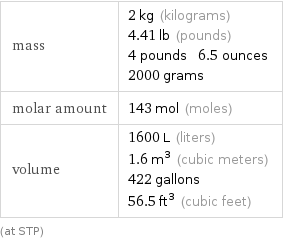
mass | 2 kg (kilograms) 4.41 lb (pounds) 4 pounds 6.5 ounces 2000 grams molar amount | 143 mol (moles) volume | 1600 L (liters) 1.6 m^3 (cubic meters) 422 gallons 56.5 ft^3 (cubic feet) (at STP)
Corresponding quantities

sphere radius | 0.7254 meters side of a cube | 1.169 meters
Current commodity price

€0.99 (euros)

98.88c (euro cents)
Thermodynamic properties for 2 kg
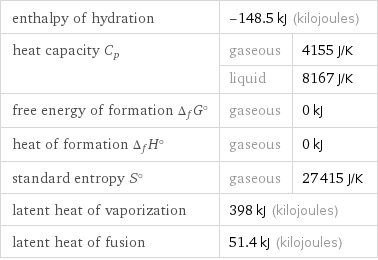
enthalpy of hydration | -148.5 kJ (kilojoules) | heat capacity C_p | gaseous | 4155 J/K | liquid | 8167 J/K free energy of formation Δ_fG° | gaseous | 0 kJ heat of formation Δ_fH° | gaseous | 0 kJ standard entropy S° | gaseous | 27415 J/K latent heat of vaporization | 398 kJ (kilojoules) | latent heat of fusion | 51.4 kJ (kilojoules) |
Units

Phase change energies for 2 kg from 25 °C

energy released from cooling to condensation point | 917 kJ (kilojoules) energy released from converting to liquid | 1920 kJ (kilojoules) energy released from cooling to condensation point and converting to liquid | 1320 kJ (kilojoules)
Lewis structure
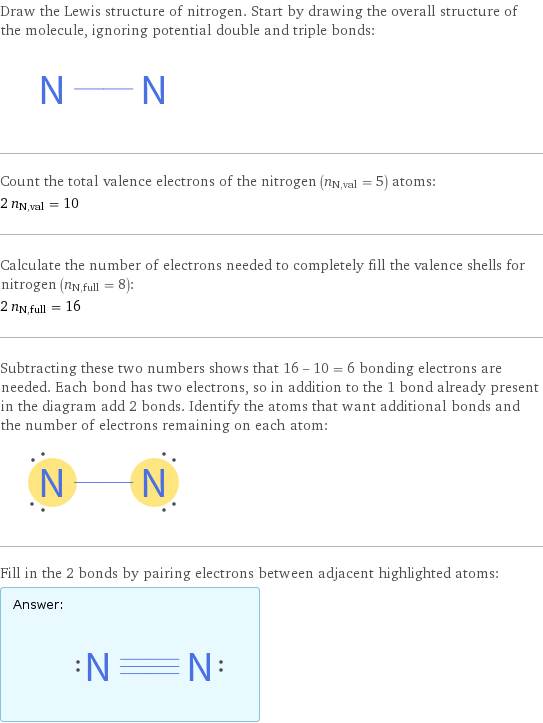
Draw the Lewis structure of nitrogen. Start by drawing the overall structure of the molecule, ignoring potential double and triple bonds: Count the total valence electrons of the nitrogen (n_N, val = 5) atoms: 2 n_N, val = 10 Calculate the number of electrons needed to completely fill the valence shells for nitrogen (n_N, full = 8): 2 n_N, full = 16 Subtracting these two numbers shows that 16 - 10 = 6 bonding electrons are needed. Each bond has two electrons, so in addition to the 1 bond already present in the diagram add 2 bonds. Identify the atoms that want additional bonds and the number of electrons remaining on each atom: Fill in the 2 bonds by pairing electrons between adjacent highlighted atoms: Answer: | |
Chemical names and formulas
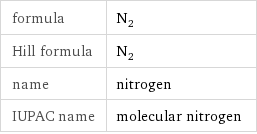
formula | N_2 Hill formula | N_2 name | nitrogen IUPAC name | molecular nitrogen
Substance properties
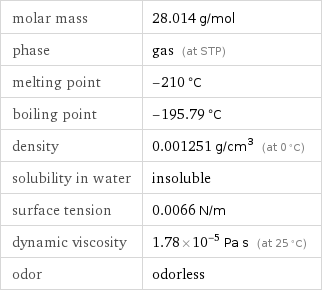
molar mass | 28.014 g/mol phase | gas (at STP) melting point | -210 °C boiling point | -195.79 °C density | 0.001251 g/cm^3 (at 0 °C) solubility in water | insoluble surface tension | 0.0066 N/m dynamic viscosity | 1.78×10^-5 Pa s (at 25 °C) odor | odorless
Units
